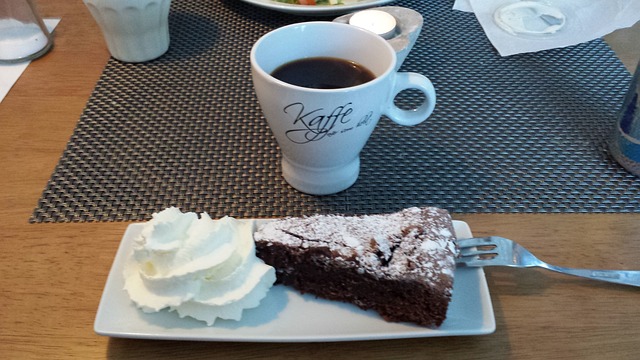Swiss Cultural Etiquette: What Visitors Should Know

Switzerland, a country known for its stunning landscapes, precision, and multiculturalism, is also a place where cultural etiquette plays a significant role in daily life. Swiss society values politeness, punctuality, and respect for privacy, and understanding these nuances can greatly enhance your experience as a visitor. Whether you’re exploring the vibrant cities of Zurich and Geneva, hiking in the Alps, or enjoying the tranquility of its lakeside towns, being aware of Swiss cultural etiquette will help you navigate social interactions with ease. Here’s a detailed guide to what visitors should know.
1. Punctuality: The Swiss Virtue
In Switzerland, punctuality is not just a habit—it’s a way of life. The Swiss take pride in being on time, whether it’s for a business meeting, a social gathering, or public transportation. Arriving late is often seen as a sign of disrespect or carelessness.
- Public Transport: Swiss trains, buses, and trams are famously punctual. Make sure to arrive at the station or stop a few minutes early to avoid missing your ride.
- Social Engagements: If you’re invited to someone’s home or a restaurant, aim to arrive exactly on time. Being too early can be just as awkward as being late.
- Business Meetings: In professional settings, punctuality is non-negotiable. Arrive a few minutes early to show respect for your host’s time.
2. Greetings: Formal and Polite
Swiss people tend to be formal and reserved, especially when meeting someone for the first time. Greetings are an important part of social interactions and set the tone for the conversation.
- Handshakes: A firm handshake is the standard greeting in both social and professional settings. Maintain eye contact while shaking hands.
- Verbal Greetings: In German-speaking regions, say “Grüezi” (hello) or “Guten Tag” (good day). In French-speaking areas, use “Bonjour” (hello) or “Bonsoir” (good evening). In Italian-speaking Ticino, “Buongiorno” is appropriate.
- Titles: Use titles such as “Herr” (Mr.) or “Frau” (Mrs.) followed by the last name until invited to use first names. This is especially important in professional settings.
3. Respect for Privacy and Personal Space
The Swiss value their privacy and personal space, and they expect others to do the same. Avoid asking overly personal questions or intruding on someone’s private life.
- Small Talk: Stick to neutral topics like the weather, sports, or Swiss culture. Avoid discussing personal finances, religion, or politics unless the other person brings it up.
- Personal Space: Maintain a respectful distance during conversations. Physical contact, such as patting someone on the back, is generally avoided unless you know the person well.
4. Dining Etiquette: Mind Your Manners
Swiss dining etiquette reflects the country’s emphasis on politeness and respect. Whether you’re dining at a restaurant or someone’s home, following these guidelines will ensure a pleasant experience.
- Table Manners: Keep your hands visible on the table (but not your elbows) and wait for the host to start eating before you begin.
- Toasting: When toasting, make eye contact with everyone at the table and say “Prost” (German), “Santé” (French), or “Salute” (Italian).
- Tipping: Service charges are usually included in the bill, but it’s customary to round up the total or leave a small tip (5-10%) as a gesture of appreciation.
- Cheese Fondue: If you’re invited to a fondue dinner, remember the golden rule: don’t lose your bread in the cheese! If you do, you might be asked to perform a fun forfeit, such as singing a song.
5. Noise and Quiet Hours
Switzerland is known for its peaceful and orderly environment. Loud behavior, especially during quiet hours, is frowned upon.
- Quiet Hours: In residential areas, quiet hours are typically observed from 10:00 PM to 7:00 AM. Avoid making noise, such as playing loud music or slamming doors, during these times.
- Public Spaces: Keep your voice down in public transportation, restaurants, and other shared spaces. The Swiss appreciate a calm and respectful atmosphere.
6. Recycling and Environmental Awareness
Switzerland is a global leader in environmental sustainability, and recycling is taken very seriously. Visitors are expected to follow local recycling practices.
- Separate Waste: Different types of waste (paper, glass, plastic, etc.) must be separated and disposed of in designated bins. Look for recycling stations in public areas or ask your host for guidance.
- Littering: Littering is heavily frowned upon and can result in fines. Always dispose of trash properly.
7. Dress Code: Neat and Conservative
The Swiss tend to dress neatly and conservatively, especially in formal or professional settings. While casual attire is acceptable for everyday activities, it’s important to dress appropriately for specific occasions.
- Business Attire: In professional settings, opt for formal business attire, such as suits and ties for men and tailored dresses or suits for women.
- Social Events: For dinners or cultural events, smart casual or semi-formal attire is usually appropriate. Avoid overly flashy or revealing clothing.
- Outdoor Activities: If you’re hiking or skiing, wear practical and weather-appropriate clothing. The Swiss take outdoor activities seriously, and being well-prepared is a sign of respect for the environment.
8. Language Sensitivity
Switzerland has four official languages: German, French, Italian, and Romansh. While many Swiss people speak English, making an effort to use a few words in the local language is appreciated.
- Language Regions: Pay attention to the language spoken in the region you’re visiting. For example, German is predominant in Zurich, while French is spoken in Geneva.
- Polite Phrases: Learn basic phrases like “Danke” (thank you in German), “Merci” (thank you in French), or “Grazie” (thank you in Italian). Even a simple attempt can go a long way in building rapport.
9. Respect for Rules and Order
Switzerland is a country that thrives on rules and order. From traffic regulations to public behavior, following the rules is a sign of respect for Swiss society.
- Public Transportation: Always validate your ticket before boarding trains or buses. Fare evasion is taken seriously and can result in hefty fines.
- Crosswalks: Wait for the pedestrian signal before crossing the street, even if there’s no traffic. Jaywalking is uncommon and can draw disapproving looks.
- Hiking Trails: Stick to marked paths and follow signage to protect the natural environment.
10. Gift-Giving Etiquette
If you’re invited to a Swiss home, bringing a small gift is a thoughtful gesture. However, keep it modest and avoid overly extravagant presents.
- Common Gifts: A box of chocolates, a bottle of wine, or a bouquet of flowers are safe choices. Avoid giving red roses, as they are associated with romantic intentions.
- Presentation: Present your gift neatly wrapped and offer it upon arrival. The host may open it immediately or set it aside to open later.



